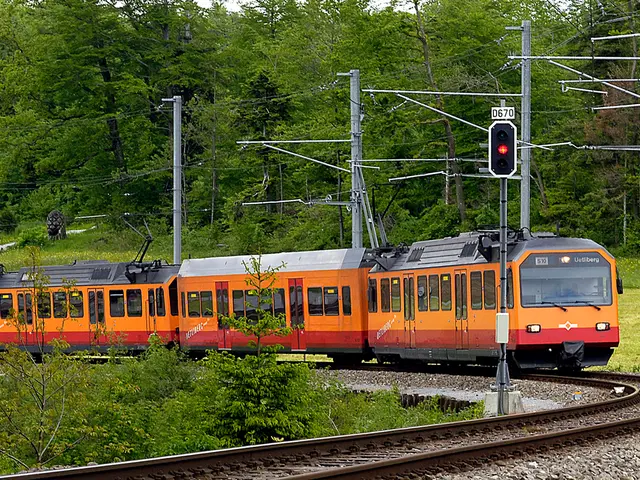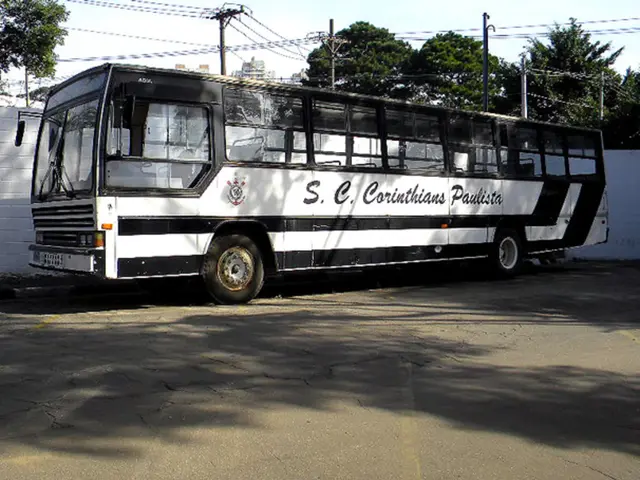Improvement Works on the Berlin-Hamburg Railway Line Hampered by Spardiktat Decision
Commuters on the Berlin-Hamburg railway line face a challenging period ahead, as the route will be closed for nine months starting on August 1, 2025. This closure affects around 50,000 passengers daily in regional and long-distance traffic with destinations in Berlin and Brandenburg. Travel times are expected to triple, and replacement buses will be available on many connections.
The closing of this 280-kilometer stretch was initially met with concerns over securing contractors for all construction sites. However, the German Railway has recently announced that companies have been secured for the final section between Hamburg-Rothenburgsort and Büchen, a feat not initially achieved in the first attempt.
The project is progressing as scheduled and within the adjusted budget of 2.2 billion euros, according to Philipp Nagl, head of DB Infrago. This increase in budget was due to the abandonment of the current European train safety system ETCS. The route was originally intended to be equipped with conventional systems PZB and LZB, along with ETCS. In the end, only 67 kilometers between Hamburg and Büchen, as well as Berlin and Nauen, were planned to be equipped with signal technology.
In related news, the DB is renewing more than 180 kilometers of track and over 200 switches during the nine-month construction phase. Six new crossing points will provide improved flexibility with additional overtaking opportunities for slower trains. However, the reduction of the originally planned new switch connections from 20 to two times the number recently reported is a point of contention for the goods train network.
Peter Westenberger, the managing director of the goods train network, has emphasized the potentially damaging commercial damages caused by the full closure of nine months. "We deserve a justification for that," he states. The goods traffic between the Hamburg harbor and the Czech Republic partially rerouted via Cologne and the Rhine faces lengthy travel times due to the 3-quarter-year closure.
The lack of information from DB Infrago regarding inconsistencies has caused concern, with Westenberger requesting clarification from the Ministry of Transport. He urges the new government not to blindly trust the DB's renovation concept with full closures, as their predecessors did.
The issues affecting the construction project are a result of underfunding of railway infrastructure over decades, with the radical reduction of the railway company's own planning and construction management capacities being described as a "mistake." This has led to a lack of planners, plan reviewers, and construction supervisors for the planning and execution of the project. Additionally, the industry has adjusted to the actual investment volume "due to lack of order security and planning security."
The high costs associated with construction projects are a result of the insufficient planning and construction preparation by the railway company, as well as the high risk involved for the executing companies. This high risk is reflected in the monetary offers of the providers, leading to overall expensive construction projects.
The solution to this issue lies in long-term planning certainty, which would enable the industry to build necessary capacities for large projects without relying on short-term tenders.
[1] The closure aims to improve the long-term efficiency and safety of the railway line, necessitating passengers and freight operators to adapt to changes during the closure period.[2] High-speed ICE trains will be rerouted via Uelzen to maintain connectivity between Berlin and Hamburg. Passengers traveling from Prague to Hamburg, Kiel, or Flensburg will need to transfer at Berlin to DB long-distance trains running on the diversion route via Stendal and Uelzen.
- The high costs of the railway line improvement project, resulting from insufficient planning and construction preparation by the railway company, have led to increased concerns in the finance industry about the viability of investments in the transportation sector.
- With the closure of the Berlin-Hamburg railway line for nine months, starting on August 1, 2025, the industry is facing a significant challenge in terms of transporting goods, particularly those between the Hamburg harbor and the Czech Republic, as alternative routes may not be as efficient or cost-effective.







